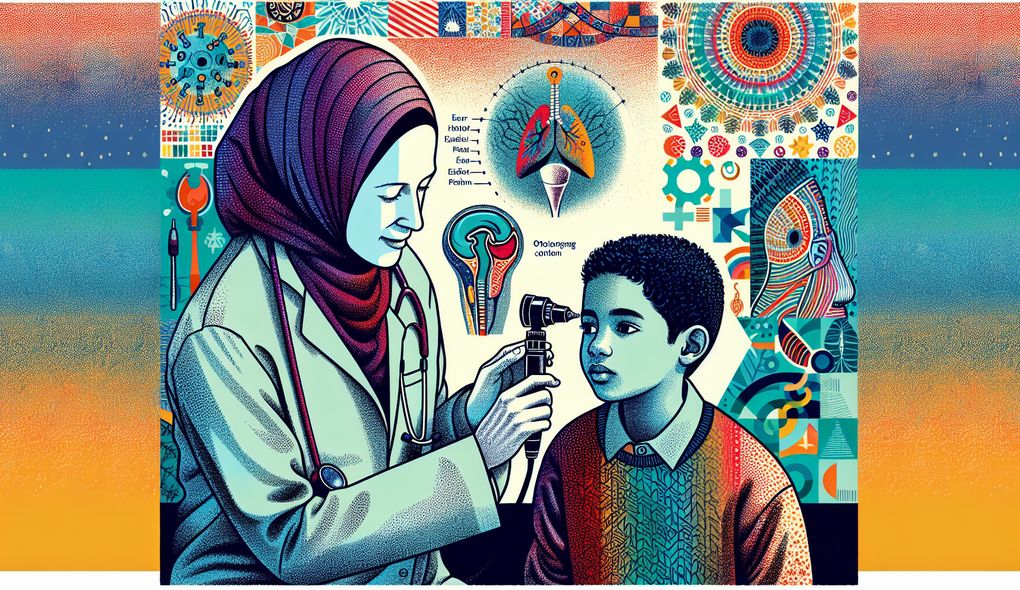What role do you play in collaborating with other physicians to provide integrated patient care?
INTERMEDIATE LEVEL

Sample answer to the question:
As an Otolaryngologist, I play a crucial role in collaborating with other physicians to provide integrated patient care. This involves working closely with specialists from various medical disciplines to ensure a holistic approach to patient treatment and management. For example, when treating a patient with chronic sinusitis, I would collaborate with an allergist to identify and address the underlying allergy triggers, and with a pulmonologist to manage any associated respiratory conditions. This interdisciplinary collaboration allows us to develop a comprehensive treatment plan that addresses all aspects of the patient's condition and promotes optimal outcomes. By sharing expertise and knowledge, we can collectively provide the highest level of care and improve patient outcomes.
Here is a more solid answer:
As an Otolaryngologist, I actively collaborate with other physicians to provide integrated patient care. This involves participating in multidisciplinary team meetings where we discuss complex cases and develop comprehensive treatment plans. For example, when treating a patient with a head and neck tumor, I would collaborate with an oncologist to determine the most effective treatment approach, and with a speech therapist to address any swallowing or speech difficulties that may arise after surgery. We also communicate regularly through electronic medical records and in-person consultations to ensure seamless coordination of care. This collaborative approach ensures that patients receive the most appropriate, evidence-based care tailored to their individual needs.
Why is this a more solid answer?
The solid answer provides specific examples of how the candidate collaborates with other physicians, such as participating in multidisciplinary team meetings and coordinating care through electronic medical records. It also highlights the impact of collaboration on patient care outcomes. However, it could be further improved by including more details about the candidate's clinical skills and communication strategies during the collaboration process.
An example of a exceptional answer:
As an Otolaryngologist, I play a pivotal role in collaborating with other physicians to provide integrated patient care. I actively engage in case conferences and tumor boards where we discuss complex cases and develop individualized treatment plans. For instance, when managing a patient with chronic otitis media, I collaborate with a pediatrician to address any underlying conditions contributing to the recurrent infections, and with an audiologist to monitor hearing function and provide necessary interventions. In these collaborations, I leverage my strong clinical skills and diagnostic abilities to contribute to accurate diagnoses and treatment decisions. I also prioritize effective communication, regularly sharing updates and treatment plans with my colleagues and ensuring that patients and their families are well-informed and involved in the decision-making process. This collaborative approach not only improves patient outcomes but also fosters a patient-centered care environment where the patient's overall well-being and satisfaction are prioritized.
Why is this an exceptional answer?
The exceptional answer goes above and beyond by providing specific examples of interdisciplinary collaboration, such as working with a pediatrician and audiologist. It also emphasizes the candidate's clinical skills, diagnostic abilities, and commitment to effective communication. The answer showcases the candidate's dedication to providing patient-centered care and ensuring the involvement of patients and their families in the decision-making process.
How to prepare for this question:
- Familiarize yourself with the various medical disciplines involved in otolaryngology and understand how collaboration with these specialties can enhance patient care.
- Reflect on past experiences where you have collaborated with other physicians and highlight the positive outcomes achieved through interdisciplinary teamwork.
- Stay updated with the latest advancements and research in otolaryngology to contribute effectively to collaborative discussions and treatment planning.
- Develop strong communication and interpersonal skills to effectively communicate with colleagues and engage patients in their care.
- Practice active listening and empathy to understand the unique needs and perspectives of other healthcare professionals and patients.
What are interviewers evaluating with this question?
- Collaboration
- Clinical Skills
- Communication
- Patient-centered Care

